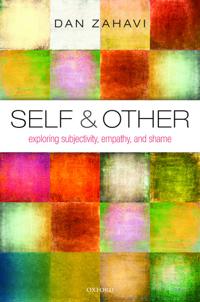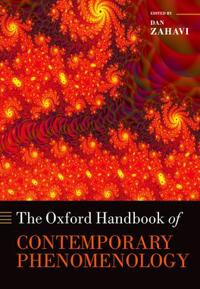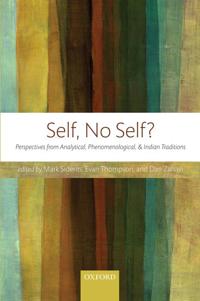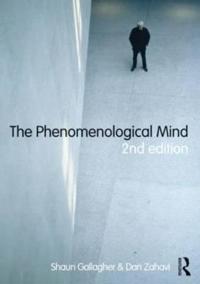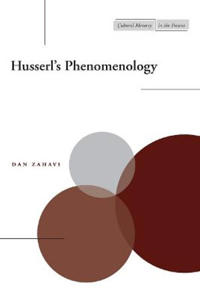Self and Other (Inbunden)
avDan Zahavi
ISBN: 9780199590681 - UTGIVEN: 2014-11Can you be a self on your own or only together with others? Is selfhood a built-in feature of experience or rather socially constructed? How do we at all come to understand others? Does empathy amount to and allow for a distinct experiential acquaintance with others, and if so, what does that tell u[...]
The Oxford Handbook of Contemporary Phenomenology (Inbunden)
avDan Zahavi
ISBN: 9780199594900 - UTGIVEN: 201302The Oxford Handbook of Contemporary Phenomenology presents twenty-eight essays by some of the leading figures in the field, and gives an authoritative overview of the type of work and range of topics found and discussed in contemporary phenomenology. The essays aim to articulate and develop original[...]
Self, No Self? (Pocket)
avMark Siderits, Evan Thompson, Dan Zahavi
ISBN: 9780199672011 - UTGIVEN: 201303The nature and reality of self is a subject of increasing prominence among Western philosophers of mind and cognitive scientists. It has also been central to Indian and Tibetan philosophical traditions for over two thousand years. It is time to bring the rich resources of these traditions into the c[...]
Subjectivity and Selfhood (Häftad)
avDan Zahavi
ISBN: 9780262740340 - UTGIVEN: 200809What is a self? Does it exist in reality or is it a mere social construct--or is it perhaps a neurologically induced illusion? The legitimacy of the concept of the self has been questioned by both neuroscientists and philosophers in recent years. Countering this, in Subjectivity and Selfhood, Dan Za[...]
The Phenomenological Mind (Häftad)
avShaun Gallagher, Dan Zahavi
ISBN: 9780415610377 - UTGIVEN: 201202The Phenomenological Mind is the first book to properly introduce fundamental questions about the mind from the perspective of phenomenology. Key questions and topics covered include: * what is phenomenology? * naturalizing phenomenology and the cognitive sciences * phenomenology and consciousness *[...]
Husserl's Phenomenology (Häftad)
avDan Zahavi
ISBN: 9780804745468 - UTGIVEN: 200302It is commonly believed that Edmund Husserl (1859-1938), well known as the founder of phenomenology and as the teacher of Heidegger, was unable to free himself from the framework of a classical metaphysics of subjectivity. Supposedly, he never abandoned the view that the world and the Other are cons[...]
Husserls Fænomenologi (Häftad)
avDan Zahavi
ISBN: 9788759315743 - UTGIVEN: 2011Edmund Husserl (1859-1938) er kendt som fænomenologiens grundlægger og er en af det 20. århundredes mest indflydelsesrige filosoffer.
Husserls fænomenologi er en indføring i en række hovedtemaer og kernebegreber i hans tænkning. Bogen er opdelt i tre hovedafsnit, der[...]Fænomenologi (Pocket)
avDan Zahavi
ISBN: 9788778672124 - UTGIVEN: 2003Bogen giver en kortfattet introduktion til en række fænomenologiske hovedbegreber og analyser, som de især kommer til udtryk i Husserls, Merleau-Pontys og Heideggers forfatterskaber. Bogen rummer en diskussion af fænomenologiens undersøgelse af livsverdenen, af subjektiviteten, af kropsligheden[...]

